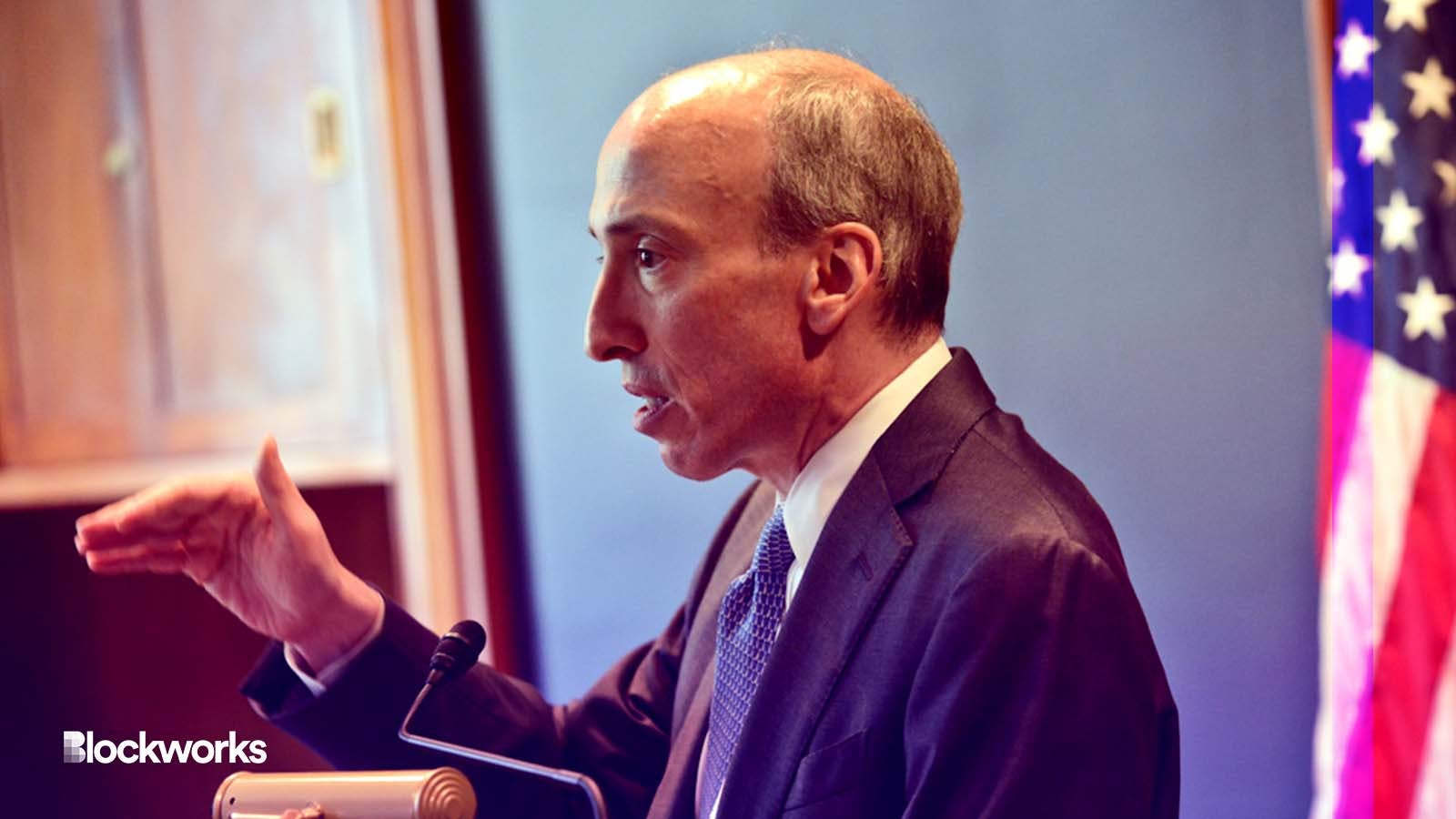SEC Chair Gensler Is More AI Fan Than Crypto Degen
On the surface, Gensler is preoccupied with the crypto industry — but the head of the SEC is looking closely at finance’s future with artificial intelligence

SEC Chair Gary Gensler | Source: Third Way "Gary Gensler" (CC license)
SEC Chair Gary Gensler has taken to the media to rally against crypto startups for shirking basic finance principles: disclosing key facts and figures when raising money from the public.
While the two-year-old XRP case persists, the SEC has pushed a renewed enforcement campaign against big players in the crypto space, targeting the likes of Kraken, Gemini and Genesis.
The actions — particularly focused on staking-as-a-service products and other interest-bearing accounts — have resulted in fines and settlement.
Gensler suggested in a recent Politico interview that these actions have done little to persuade firms to play along. Crypto as an industry “seems to belie” coming into compliance with US securities laws, he said.
Read more: SEC Land Grab: Crypto Enforcement Actions Accelerate Under Gensler
“The path to compliance is clear,” Gensler said. But the SEC’s overarching ‘regulation by enforcement’ strategy has drawn out criticism from crypto-friendly Commissioner Hester Peirce.
Peirce says Gensler’s SEC is restricting investor access to crypto and slowing innovation. In extreme cases, the approach has even prompted individuals and businesses to relocate abroad as they seek to mitigate unknown regulatory risks.
No need for new crypto rules: Gensler
The crypto industry worldwide has been busy lobbying local lawmakers and regulators to create more accommodating rules.
In particular, Gensler criticized the European Union’s Markets in Crypto-Assets (MiCA) framework, taking a dig at the sweeping regulations as they don’t “even cover bitcoin.” To date, the SEC considers bitcoin the only crypto commodity.
MiCA establishes a set of rules for issuers of digital assets, service providers and trading platforms to enhance investor protection, market integrity, and financial stability across the EU.
Initially, the bill included provisions to prohibit proof-of-work-based cryptocurrencies, such as bitcoin. However, the proposal was later abandoned in the final version of the bill.
Gensler maintained that he’s focused on helping shield the public from financial harm, and that long-lasting securities laws should apply to crypto businesses.
He faces strong opposition from crypto executives and their House allies. Republicans in the House of Representatives are ramping up oversight of his crypto enforcement actions.
Despite the pressure, Gensler said he remains committed to his role and has been praised by some for the hardline stance, particularly from fellow crypto critic Democrat Elizabeth Warren.
Gensler also threw light shade on crypto innovation to date. Artificial intelligence could end reshaping finance more than crypto, particularly as brokerages and the like adopt the technology, the SEC chief reportedly told Politico.
“The much more transformative technology right now of our times is predictive data analytics and everything underlying artificial intelligence,” Gensler said.
Get the news in your inbox. Explore Blockworks newsletters:
- The Breakdown: Decoding crypto and the markets. Daily.
- 0xResearch: Alpha in your inbox. Think like an analyst.






